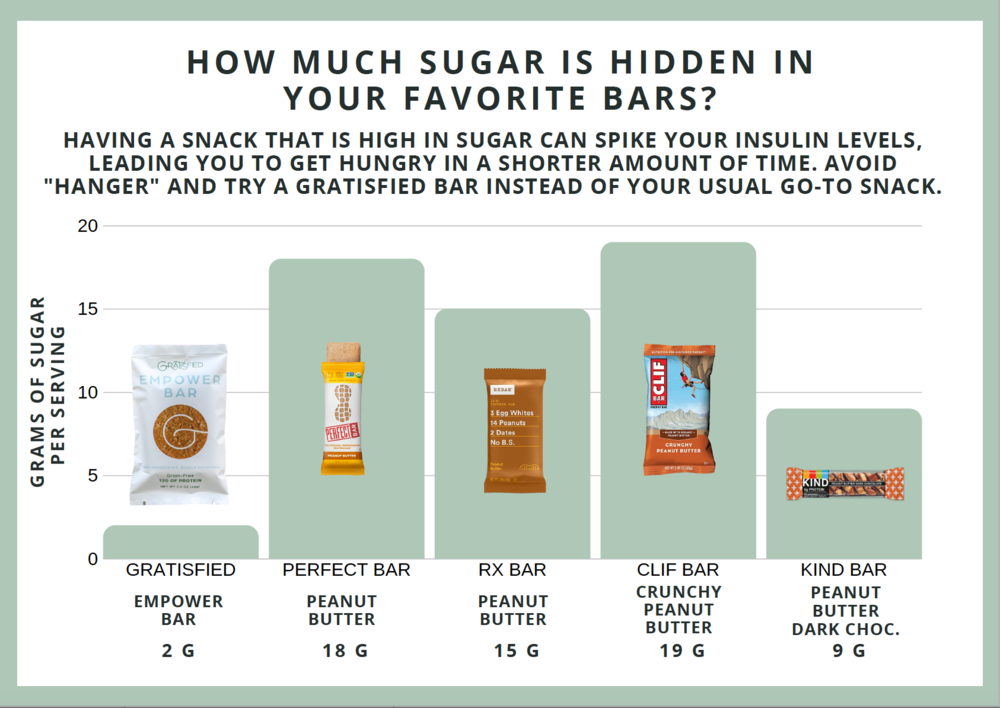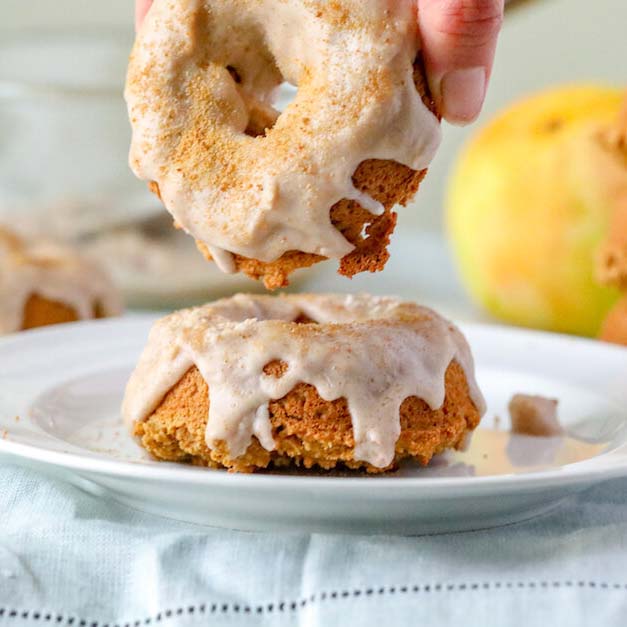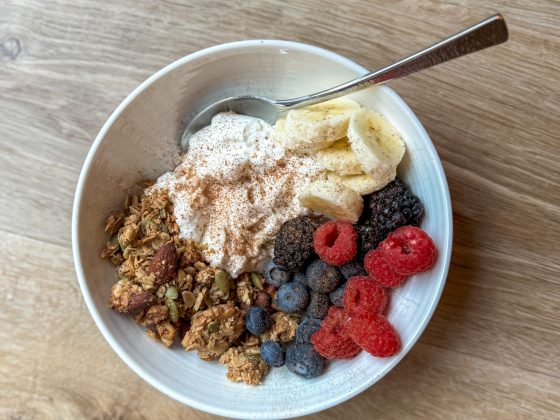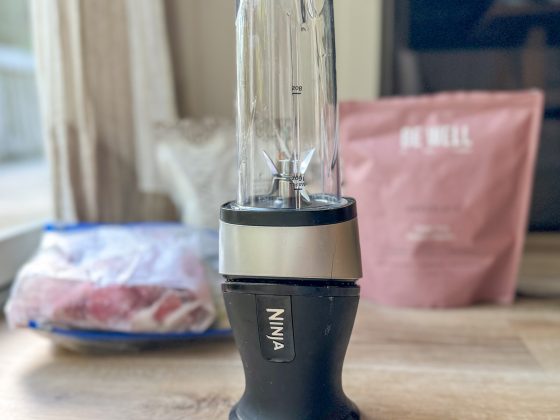I will preface this by saying I am primarily speaking to those with a goal of fat loss. As a health coach, I refer to weight loss as fat loss, because one wants to avoid losing muscle tissue. You want to send the signal to your body to burn fat stores for fuel, and timing carb consumption in your day is one way to go about this.
A major myth in nutrition when it comes to weight loss is the belief that it’s best to eat carbohydrates in the morning. You then have all day to burn them off, right? Not exactly. We have to consider the way our bodies process carbs, and the delicate dance of our hormones that must also be taken into account. Let me explain.
In the morning, because we have fasted overnight, our bodies are most sensitive to whatever it is we choose to eat first. Our blood sugar and insulin levels are at their lowest point. When we start our day with a high concentration of carbohydrates (as many people do – think bagels, cereal, oatmeal, lots of fruit), it creates a more dramatic insulin spike. Cue the sugar surge and crash cycle that will leave you with low energy, increased hunger and continual carb cravings.
What happens when you consume carbohydrates?
When consumed, carbohydrates get broken down to glucose, or sugar in its simplest form. Insulin’s job is to usher glucose to our cells for energy. However, the capacity for glucose in our organs is limited, and anything in excess gets converted to triglycerides (i.e. fat) and stored. And because insulin is a storage hormone, the mere presence of it will prevent your body from burning fat for fuel. Think about it – your body is a very smart and efficient machine. If it has an immediate source of energy readily available (glucose), why would it go through the extra trouble of breaking down stored fat?
But let’s be clear: insulin is not the enemy. It’s actually quite essential; we need nutrients to be stored for fuel. Carbs shouldn’t be completely vilified either, as protein and fat initiate an insulin response as well, just not as much. Excess insulin is what we need to be mindful of, which is why the type and timing of carbohydrates need to be considered when fat loss is your goal.
But wait…
There’s more. Cortisol (our stress hormone) is highest in the morning thanks to our natural sleep/wake cycle, also known as our circadian rhythm. It’s what wakes us up, and then peaks shortly thereafter. This can be beneficial where weight loss is concerned, as cortisol helps facilitate fat loss first thing. So what does this have to do with eating carbs in the morning? With a simultaneous blood sugar spike, cortisol interacts with insulin in a way that signals to the body to store more fat. The body thinks it may need it for fuel later on. Not exactly conducive to our body’s fat burning capabilities.
What You Can Do About It
When is the best time to eat certain carbohydrates when it comes to fat loss? Leafy greens and non-starchy vegetables can (and should) be enjoyed all day long. Non-starchy includes those cruciferous veggies (broccoli, Brussels sprouts, cauliflower, and cabbage for example), as well as artichokes, asparagus and celery to name a few.
It’s best to shift fruit and starchy carbs (squash, potatoes, whole or gluten-free grains) to either be consumed post-workout (when your muscles are in refuel mode) or to the evening. Yes, it’s another myth that eating carbs at night will cause you to gain weight, but studies show this isn’t necessarily true. Keep in mind that overconsumption of anything might lead you to pack on the pounds, but when practicing moderation, eating carbs in the evening might be your best bet. To sum it all up, here is why:
Hormones
As I have already said, high cortisol and elevated insulin levels together create a cocktail for fat storage. This is why we don’t want to spike blood sugar in the morning. Cortisol tapers off in the afternoon into the evening (the natural preparation for sleep), so eating carbs at this time avoids this environment. And as we balance our blood sugar to prevent excess insulin throughout the day, our reaction to carb consumption at night will be less severe.
Calming carbs
Consuming starchy foods in the evening could help you sleep. Dietary-carbohydrate intake is associated with the production of serotonin in the brain. Serotonin is a neurotransmitter that not only relaxes you, but is a necessary precursor to the production of melatonin, an important hormone that regulates sleep. What better time to consume these carbs than right before bed?
Cravings kept at bay
Because these carbs carry a higher glycemic load, they create a larger blood sugar response more than their lower glycemic counterparts. What goes up, must come down, and your body will be asking for more carbs and sugar as a result. If eaten primarily in the evening (with protein and healthy fat of course), you can avoid the cycle throughout the day and help keep cravings under control.
This science played a major role when I created the recipe for the Empower Bars and V Bars! I wanted you to have an on-the-go, blood sugar balancing option for your morning. See how it compares to other bars!











